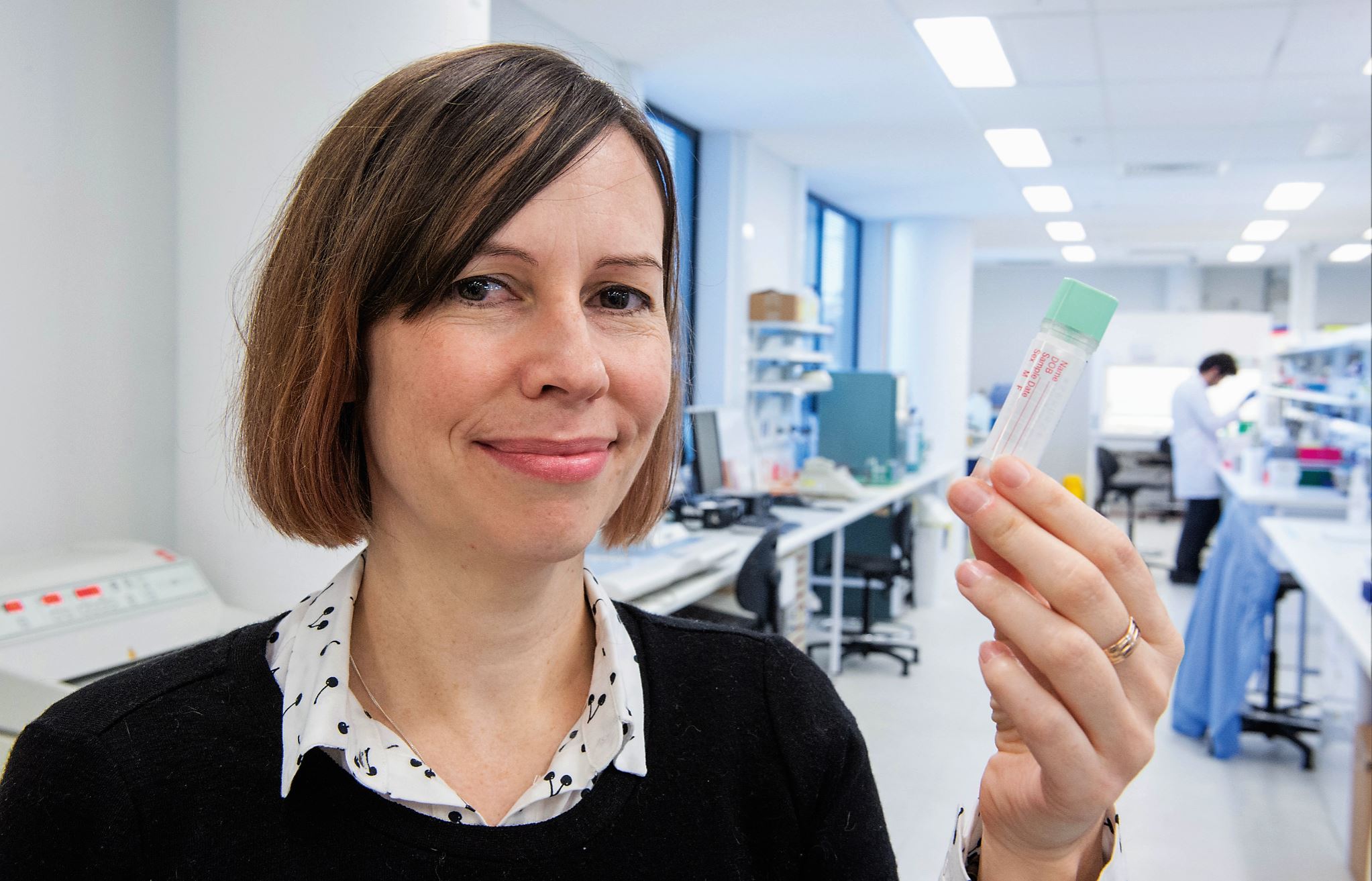
Flinders cancer experts have been awarded a major $553,196 grant to improve the survival and recovery of colorectal cancer patients via a simple blood test.
Chief investigator Dr Erin Symonds, based at the Flinders Centre for Innovation in Cancer, says bowel cancer is one of the most common cancers in Australia.
“Despite surgery, approximately one-quarter to one-third of patients will have the cancer return within three years,” says Dr Symonds, Principal Medical Scientist and Team Leader of the Bowel Health Service at Flinders Medical Centre.
“With colleagues, we have developed and evaluated a blood test that can detect bowel cancer and will now determine if it can also be used to determine which patients are at higher risk for cancer recurrence.
“This would allow specialists to focus therapies, especially chemotherapy, on those who are likely to most benefit – and avoid it in those who do not need it,” she says.
The Cancer Australia research project, entitled ‘Personalising treatment and surveillance for colorectal cancer: prognostication with the circulating tumour-derived methylated DNA markers BCAT1 and IKZF1,’ builds on world-leading research in the field at Flinders.
The research will use the pioneering ‘Colvera’ blood test in patients who have already had bowel cancer – whatever their age.
“We will see if the blood test can determine who is at greatest risk for the bowel cancer coming back, despite successful surgery.
“The blood test will hopefully be used to determine how best to treat a patient after their bowel cancer is surgically removed.”
The Australian-developed Colvera test, a partnership with cancer diagnostic solutions company Clinical Genomics, won a Eureka medical science prize and promises to hold the key to reducing the death rate from bowel cancer recurrence.
So far Colvera is being used for research purposes in Australia.
Flinders University Professor Chris Karapetis, with Matthew Flinders Distinguished Professor Graeme Young, Dr Gang Chen, Dr Amitesh Roy and Professor Robert Fraser will support the new Cancer Council research project.
Last year, Dr Symonds and co-investigators including Professor Young were awarded an $880,237 NHMRC research grant for another project: ‘FIT for purpose: personalised surveillance colonoscopy for people at increased risk of colorectal cancer’.
Previous research at Flinders investigated general screening for bowel cancer and pioneered the development of the Colvera blood test and launch of the National Bowel Cancer Screening Program in Australia.

Cancer Australia says less than 50 per cent of cases of bowel cancer are diagnosed at an early stage when it can be most successfully treated.
Each day, 46 people are diagnosed with bowel cancer in Australia while approximately 11 people die from the disease.
While it is one of the most preventable cancers and could be successfully treated if diagnosed early, 24% of bowel cancers were diagnosed at stage three and 18% at stage four in Australia.
Modifiable risk factors for bowel cancer include being overweight, physical inactivity, a low intake of dietary fibre, a high intake of red or processed meat, high alcohol consumption and smoking.
In addition, the Australian Government’s National Bowel Cancer Screening Program provides an important way in which Australians aged 50-74 can reduce their risk of the disease and improve their chance of early diagnosis.
A recent analysis of the NBCSP by the Australian Institute of Health and Welfare shows that bowel cancer screening is effective in reducing bowel cancer death rates, yet participation remains low at 41 per cent.

The Australian Government is aiming to send a kit every two years to people aged 50-74 by 2020.
If detected early, up to 90% of cases can be successfully treated.
Symptoms to watch include a change in bowel habits, bleeding from the rectum, unexplained weight loss, tiredness or fatigue, abdominal pain, cramping or bloating.
The Cancer Australia ‘Priority-driven Collaborative Cancer Research Scheme’ supports research that reduces the impact of cancer on the community and improves outcomes for people affected by cancer.
Working with the NHMRC, the scheme is funded by Cancer Australia as well as Cancer Council Australia, Children’s Hospital Foundation, Cure Cancer Australia, Leukaemia Foundation of Australia, My Room, Pancare Foundation and The Kids’ Cancer Project.
For more about bowel cancer. Check Your Cancer Risk provides tips and information to reduce your risk, or the Cancer Australia’s National Cancer Control Indicators (NCCI) for more information.

